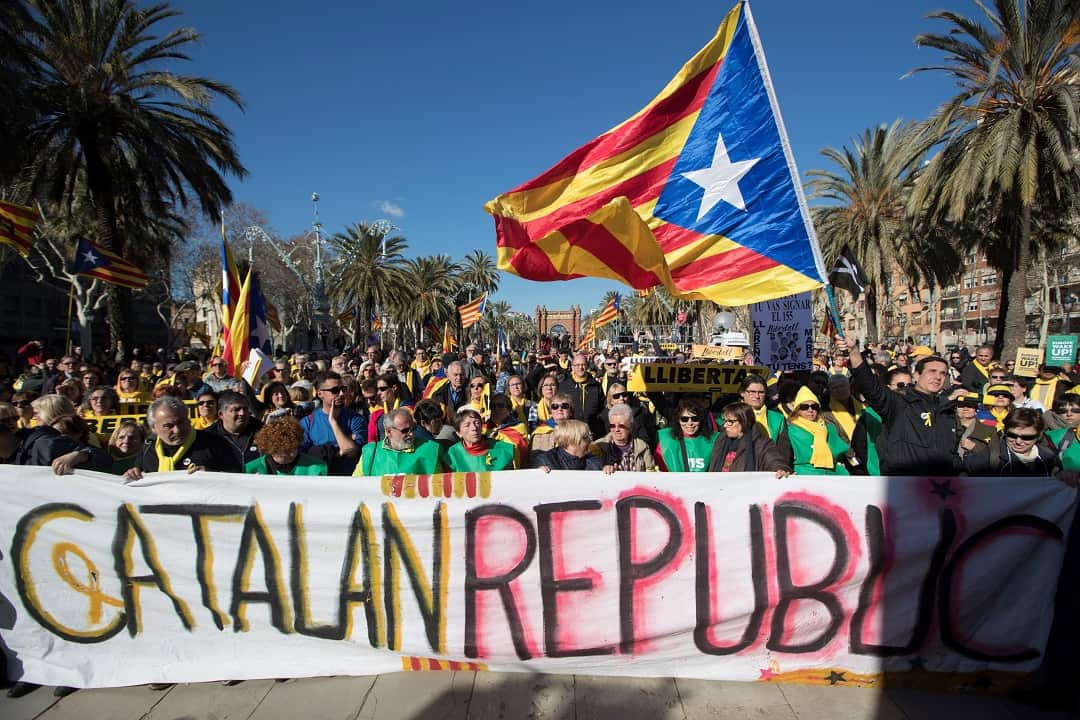As MPs met for the first time since a failed bid to break from Spain, protesters waving separatist flags gathered outside the assembly in Barcelona where pro-independence parties are in the majority after winning regional elections on December 21.
With 70 out of 135 deputies, they largely favour Puigdemont as candidate for regional president.
He was sacked by Prime Minister Mariano Rajoy along with his cabinet on October 27 after the regional parliament declared unilateral independence, sparking a major political crisis in Spain and sending shock waves across Europe.
Control of parliament key
Despite being in Belgium, Puigdemont wants to make a comeback and govern the deeply divided region, though what he plans to do if he manages this remains a mystery.
For separatist lawmakers, the first step towards this was to secure control of parliament by getting one of their supporters elected as speaker.
They did precisely that on Wednesday, with 65 lawmakers voting for Roger Torrent, the 38-year-old member of the leftwing separatist ERC party, against 56 who cast their ballot for an anti-independence candidate.
They also got four supporters elected as deputy parliamentary speakers out of seven.
These make sure assembly rules are respected and will decide whether Puigdemont and others are allowed to be lawmakers while remaining out of the country.

Including the former Catalan president, five separatists are abroad and risk arrest on charges of rebellion, sedition and misuse of public funds for their role in the failed independence bid if they come back to Spain.
A further three pro-independence lawmakers are in jail pending a probe into similar charges.
Large yellow ribbons that have come to represent support for those in jail were placed on parliamentary seats Wednesday.
In his first speech as speaker, Torrent said the priority would be to end Madrid's unpopular direct rule on Catalonia, imposed after the declaration of independence.
He added he wanted to "help look for understanding and dialogue in Catalonia's political life."
Lawmakers ended the session by singing the Catalan hymn, and separatist MPs shouted "long live a free Catalonia" and "freedom," briefly applauded by Torrent.
Sworn in via videolink?
To be elected president, Puigdemont should in theory be present at a later parliamentary session where the vote to name a new leader takes place, but he wants to appear by videolink or write a speech and have it read by someone else.
The Catalan parliament's rules stipulate that the candidate for the regional presidency must "present his or her government programme to parliament".
It does not detail whether this must be done in person, but several legal experts, the opposition and the central government insist it cannot be done remotely.
Rajoy's government has warned Madrid will maintain direct control over Catalonia if Puigdemont attempts to govern from Belgium, which could lead to yet another crisis.
If there is no agreement over a regional president, fresh elections would be called.
Madrid's direct rule has proven very unpopular in a region that had enjoyed considerable autonomy before its leaders attempted to break away from Spain.
According to Economy Minister Luis de Guindos, the secession crisis that kicked off on October 1 when Catalan leaders held an independence referendum despite a court ban has taken a financial toll.
He has said the crisis has slowed economic growth in the region at an estimated cost of one billion euros ($1.2 billion).
More than 3,000 companies have moved their legal headquarters out of the region as uncertainty persists.

